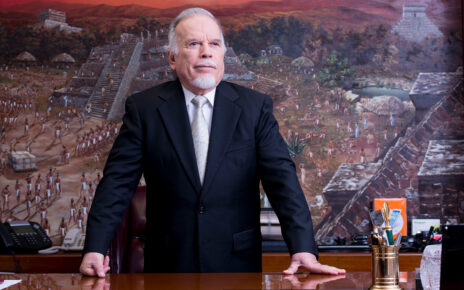HOW WE MANAGE COLLABORATORS AT VÍVARO
By Guillermo Enrique Villaseñor Medal
Welcome to this article where I’ll share insights surrounding the much talked about is within organizations or, more specifically, employee commitment.
What exactly is collaborator commitment and why is it so important? For starters, we must understand that commitment is a two-way street and is equally important for everyone involved (leaders, collaborators and organization). It’s also crucial to understand the negative effects of a lack of commitment from collaborators.
Engagement is much more than having present and active collaborators in the workplace. It includes developing an emotional and cognitive connection with the organization and its purpose. In other words, to determine as a team how we can create extraordinary experiences and transformative solutions at Vívaro; how our committed collaborators feel passion for their work and are willing to go above and beyond to reach Vívaro’s and its business units’ objectives and results.
We must not confuse is with employee satisfaction since a person can be satisfied with their job but not necessarily be committed to their organization.
What is it that really encourages collaborator commitment? Among several factors that contribute to it, one is absolutely fundamental: open and transparent communication. Collaborators must be aware that their opinions are valuable, and that direct communication channels with the organization’s leaders exist.
Additionally, gratitude and recognition for a job well done are important motivators. They also need opportunities to develop personally and professionally with diverse tasks that motivate them to continue learning and acquiring new abilities and competencies to feel committed to their job.
The following question is highly relevant: who is responsible for continually promoting is? As mentioned above, it is a shared responsibility since it needs both leaders’ and collaborators’ commitment. Leaders must create an environment that promotes participation, establishing a culture of trust and mutual respect. Likewise, collaborators must assume responsibility of their own engagement and actively and continually search for ways to be involved in their work and development in the organization.
To achieve this, there are diverse tools available. Empowerment is one of them: it allows collaborators to make their own decisions, have autonomy in their work, and promotes a sense of responsibility and ownership.
Two other important tools are development and self-development: these provide learning and growing opportunities that not only help evolve the knowledge and abilities provided by the organization, but also those brought on by the collaborator’s own interest.
Self-management is the third tool: it allows collaborators to take responsibility for their own objectives, work and decision-making, promoting their sense of purpose and intrinsic motivation.
Let’s dive into constructive discussion: is money an effective tool to promote long-term commitment among collaborators? Although a fair and competitive salary is necessary to attract and retain talent, studies indicate that it is not the main driver of engagement within organizations. Results show that other factors, such as recognition, autonomy and personal development, have a much greater impact on long-term commitment, as well as job satisfaction. is dentro de las organizaciones. Los resultados demuestran que otros factores, como el reconocimiento, la autonomía y el desarrollo personal, tienen un impacto mucho mayor en el compromiso a largo plazo, así como en la satisfacción laboral.
In conclusion, employee commitment is essential to an organization’s success and sustainability. It entails an emotional and cognitive commitment, and is influenced by various factors, such as open communication, recognition and personal development. Both leaders and employees have essential roles in promoting participation.
At the end of May and during June 2023, we launched the Gallup Q12 survey at Vívaro, the world's leading consulting firm in measuring employee experience within organizations. The results will give us insights regarding the level of is within Grupo Vívaro and accordingly establish mechanisms to understand how we must manage our collaborators’ needs to create an environment that fosters commitment and long-term success in our organization. We’ll share the results with you soon.
“Great changes may not happen right away, but with effort even the difficult may become easy.” - Bill Blackman.



